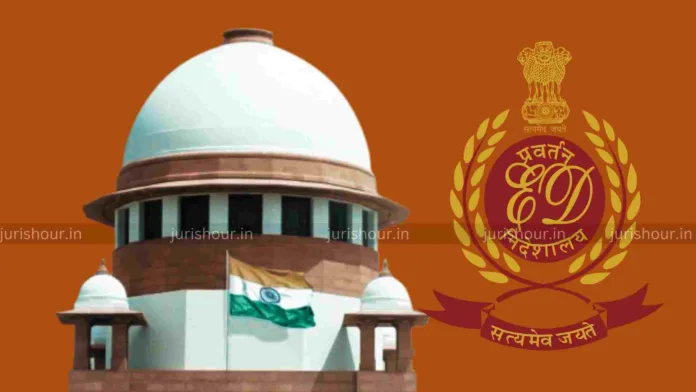The Supreme Court raised serious concerns about the low conviction rate in cases prosecuted by the Enforcement Directorate (ED), even as the agency continues to detain accused individuals for extended periods without trial.
The bench of Chief Justice of India (CJI) BR Gavai, along with Justices Satish Chandra Sharma and Vinod Chandran, observed that despite the absence of convictions, the ED appears to have effectively punished the accused by keeping them incarcerated for years.
“Even if they are not convicted, you [ED] have been successful in sentencing them almost without a trial for years together,” remarked CJI Gavai during the hearing.
The remarks came during the hearing of a review petition related to the rejection of JSW Steel’s resolution plan for Bhushan Power and Steel Limited (BPSL). Solicitor General Tushar Mehta, appearing on behalf of the Committee of Creditors (CoC), defended the ED’s role, stating that the agency had recovered over ₹20,000 crore and distributed the amount to the victims of financial fraud.
“The matters that reach the courts are only the high-profile ones. There are many others too,” Mehta argued.
However, CJI Gavai was quick to interject, questioning the agency’s track record in securing convictions.
“What is the conviction rate?” the Chief Justice asked.
Responding to the query, Mehta said convictions and recoveries operate differently. “Sometimes we wonder how a person was acquitted. Sometimes we recover so much money that our machines stop working. We can’t go around giving press interviews and YouTube discussions,” he said.
The Bench, however, dismissed the relevance of media narratives, with the Chief Justice asserting, “We don’t decide matters based on press reports.”
The hearing on the review petition remains ongoing, but the court’s pointed remarks have once again spotlighted the ED’s practices, particularly the prolonged incarceration of accused persons without substantive judicial conclusions.

